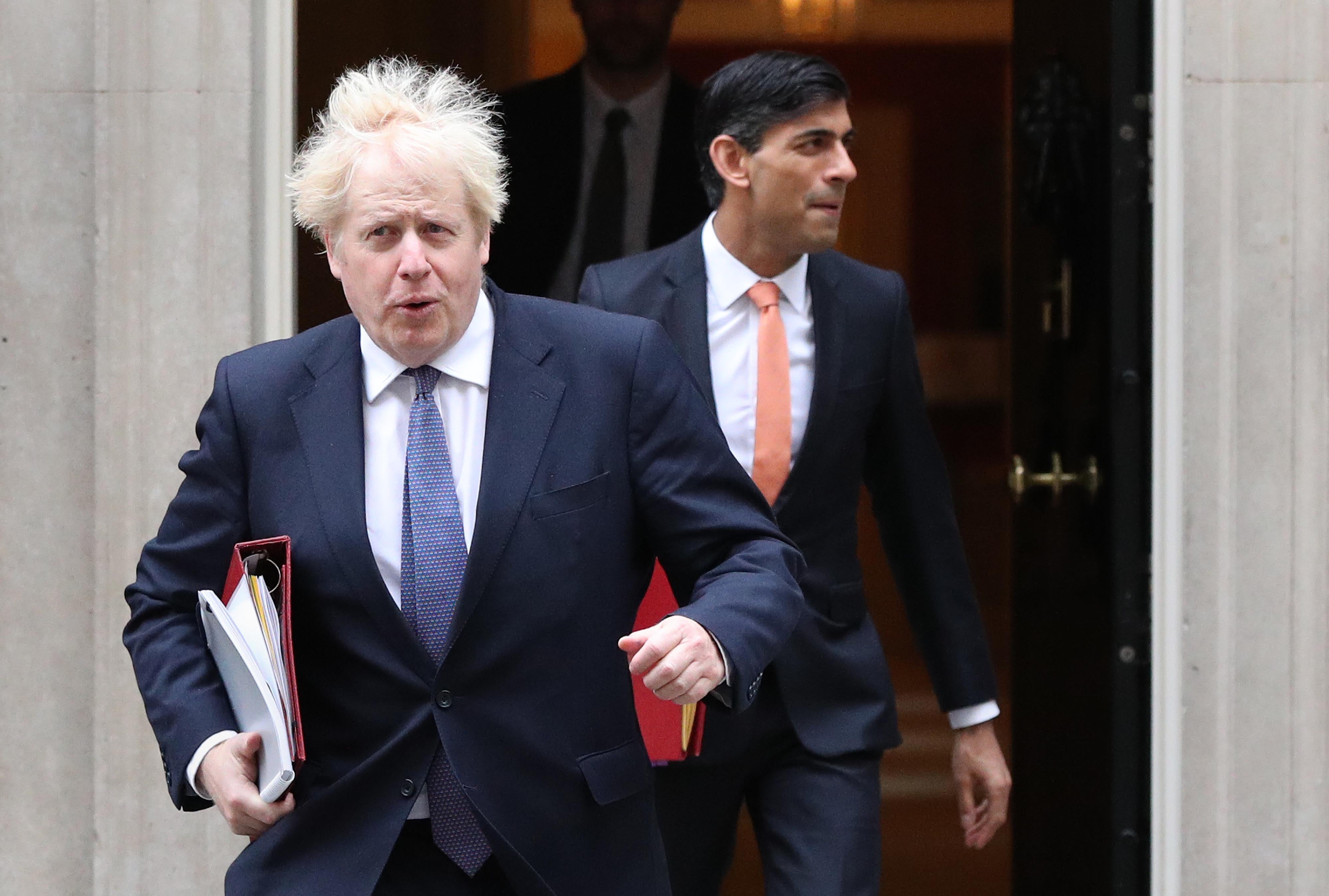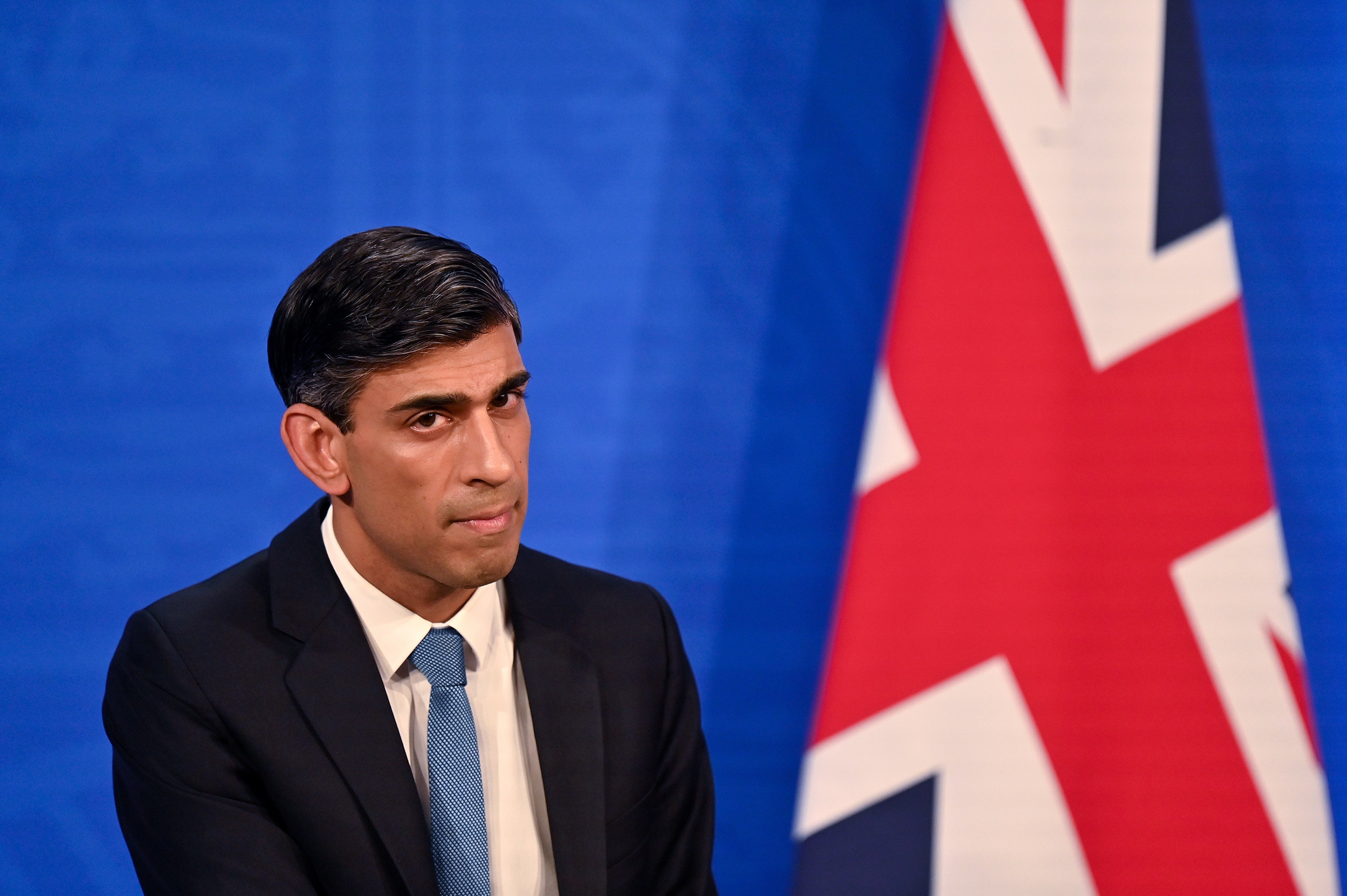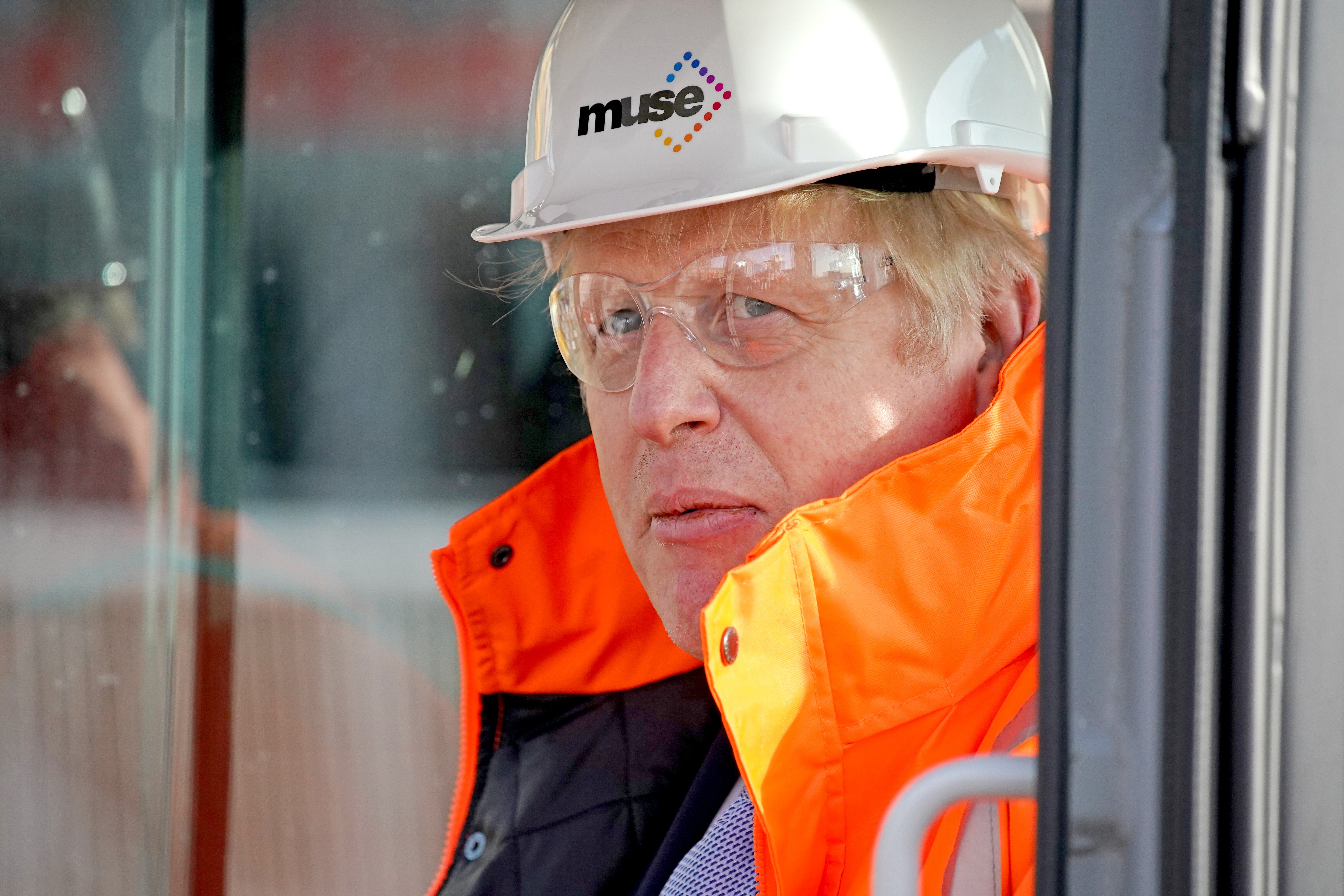Rishi Sunak: All the clues the chancellor has given that he intends to run for Tory leader
Boris Johnson under ever-increasing pressure after four senior aides depart in one day
Your support helps us to tell the story
From reproductive rights to climate change to Big Tech, The Independent is on the ground when the story is developing. Whether it's investigating the financials of Elon Musk's pro-Trump PAC or producing our latest documentary, 'The A Word', which shines a light on the American women fighting for reproductive rights, we know how important it is to parse out the facts from the messaging.
At such a critical moment in US history, we need reporters on the ground. Your donation allows us to keep sending journalists to speak to both sides of the story.
The Independent is trusted by Americans across the entire political spectrum. And unlike many other quality news outlets, we choose not to lock Americans out of our reporting and analysis with paywalls. We believe quality journalism should be available to everyone, paid for by those who can afford it.
Your support makes all the difference.Boris Johnson’s premiership continues to go from bad to worse after another torrid week that saw five aides quitting in less than 24 hours.
Inevitably, questions are being asked about who might replace him and chancellor Rishi Sunak is increasingly being touted to launch a leadership challenge and may be – deliberately or otherwise – leaving a trail of clues about his ambitions to move into Number 10.
Mr Sunak was forced to address the growing cost of living crisis on Thursday when he appeared before the House of Commons to unveil the government’s plans for taking the “sting” out of soaring energy bills facing more than 22m British households from April.
Responding to Ofgem’s record-breaking 54 per cent hike in the energy price cap, which means almost £700 a year more being tacked onto the price of heating homes while wages remain stagnant and food, fuel and national insurance are all climbing, Mr Sunak announced a package of discounts and council tax rebates worth £350 per household to help out.
And yet, for all that, the chancellor’s “Black Thursday” was nowhere near so dark as that of his boss, who endured another brutal day in Westminster and fresh questions about his future.
The prime minister remains dogged by the “Partygate” scandal even after the publication of senior civil servant Sue Gray’s heavily-redacted report into the rule-breaking Downing Street parties alleged to have taken place behind closed doors during lockdown, not least because the Metropolitan Police are currently investigating 12 such events and have 300 photographs and 500 documents in their possession related to the gatherings, courtesy of Ms Gray.
During a desperate attempt to defend himself in the House of Commons on Monday afternoon immediately after the Whitehall mandarin’s findings were published, Mr Johnson falsely accused his opposite number, Sir Keir Starmer, of being responsible for the failure to prosecute paedophile Jimmy Savile during his tenure as director of public prosecutions (DPP) between 2008 and 2013.
An official report at the time made clear that Sir Keir had played no part in decisions that prevented the prosecution of the prolific sex offender prior to his death in 2011 but Mr Starmer did issue an apology in his capacity as DPP on behalf of the Crown Prosecution Service.
The outcry over the smear has rumbled on all week, finally forcing Mr Johnson to issue a grovelling mea culpa and say: “Let’s be absolutely clear, I’m talking not about the leader of the opposition’s personal record when he was DPP and I totally understand that he had nothing to do personally with those decisions. I was making a point about his responsibility for the organisation as a whole. I really do want to clarify that because it is important.”

But that was not enough for his long-loyal adviser and director of policy Munira Mirza, who sent him a resignation letter on Thursday saying the “scurrilous” Savile jibe was an “inappropriate and partisan reference to a horrendous case of child sex abuse” and told Mr Johnson: “You have let yourself down.”
Her exit was swiftly followed by three more, as the PM’s communications chief Jack Doyle, chief of staff Dan Rosenfield and principal private secretary Martin Reynolds all likewise jumped ship – with Downing Street hurriedly briefing that their exits were all part of a pre-planned shakeup of Mr Johnson’s inner circle.
On Friday, Elena Narozanski, another member of the Downing Street policy unit, became the fifth aide to join the exodus.
Mr Sunak had meanwhile belatedly weighed into the Savile controversy, telling a press conference: “Being honest, I wouldn’t have said it and I’m glad that the prime minister clarified what he meant.”
The remark is being interpreted as a clear attempt to draw a line between himself and the ailing PM, who continues to live in fear of Sir Graham Brady announcing that the 1922 Committee of Tory backbenchers has received the 54 letters of disapproval needed from MPs to trigger a no-confidence vote.
Earlier in the day, Mr Sunak declined an opportunity to categorically rule out running for the Conservative Party leadership in the event that an election was held to choose Mr Johnson’s successor, dismissing the question as a “hypothetical situation”.
Pressed by the BBC’s Laura Kuenssberg about enthusiasm for his candidacy among his fellow Tories, the MP for Richmond in the Yorkshire Dales answered: “Well, that’s very kind of them to suggest that, but what I think people want from me is to focus on my job.

“I know a few of my colleagues have said that and they’ll have their reasons for doing that, but I don’t think that’s the situation we’re in.
“The prime minister has my full support. And what people want from me is to be getting on with my job, which is what I’m doing.”
Concerning Partygate, Mr Sunak admitted that he had been in the Cabinet Room for the birthday celebration organised by Mr Johnson’s wife Carrie on 19 June 2020 and commented: “I can appreciate people’s frustration. And I think it’s now the job of all of us in government and all politicians to restore people’s trust.”
While that saga first emerged before Christmas, with dribs and drabs of details seeping out through the media on an almost daily basis, it briefly fell silent as the rise of the Omicron variant of Covid-19 posed a threat to the festive season.
When cases gradually began to subside in the New Year, Partygate returned and speculation about Mr Johnson’s future returned, at which point Mr Sunak began to be discussed seriously as a potential successor and scored a 46 per cent approval rating over the PM in a YouGov poll of Conservatives published by Sky News on 9 January.
The chancellor then raised knowing eyebrows three days later when he chose to duck out of the explosive Prime Minister’s Questions at which Mr Johnson admitted he had attended the now-notorious “bring your own booze” No 10 garden party on 20 May 2020 while offering the extraordinary explanation that he “implicitly believed it was a work event”, attracting howls of derision from the opposition benches and much of the country.
Spending the day 200 miles away in Devon instead, Mr Sunak tweeted a brief message of encouragement later that evening, saying only that the PM had been “right to apologise” and calling for “patience”, a post that read as distinctly lukewarm and more than a little forced.
Since then, away from the cameras, he and foreign secretary Liz Truss have been widely reported as spending their time sounding out possible endorsements from their fellow Tories in the event that a leadership election should come to pass, with the chancellor accused of courting the “Pork Pie Plotters” on 23 January to secure their backing.
The name refers to a group of around 20 disaffected MPs who won their seats in so-called “red wall” constituencies in 2019, one of which is Melton in Leicestershire, held by Alicia Kearns and home of the celebrated Melton Mowbray pork pie.
Of Mr Sunak’s alleged conspiring with that cabal, a source told The Mail on Sunday he had sought to reassure them that the Treasury would remain generous with regional funding under his premiership.
“He didn’t mention the leadership, but he didn’t have to – he made clear that they would be safe in his hands,” the same source told the newspaper.

On 29 January, The Independent reported that the chancellor considered Partygate “unsurvivable” for the PM and that he had “built a draft version of a campaign website, taking inspiration from his weekly No 11 newsletter, and developed a marketing strategy” in anticipation of an imminent leadership bid.
“There’s no question that Rishi and his team have got everything in place,” a source said, with “boy genius” adviser Cass Horowitz said to be readying the latest promotional push for the chancellor’s online brand.
For all his subsequent false modesty, Mr Sunak, one of the richest MPs in Westminster thanks to his marriage to Indian billionaire’s daughter Akshata Murthy, has been talked about as a future Conservative prime minister ever since his pre-hedge fund days as a politics, philosophy and economics student at Lincoln College, Oxford, according to Tatler.
He enjoyed an initial bounce in popularity in 2020 as the fresh face of the government’s bailout schemes in response to the first wave of the coronavirus – cheerily posing in restaurants to promote the short-lived “Eat Out to Help Out” initiative – and has managed to emerge relatively unscathed by Partygate (so far), leading him to remain firm favourite to succeed the PM with bookmakers.
The development of the cost of living crisis this year could seriously burn up much of that goodwill, however, so the present scandal engulfing Mr Johnson could represent his best chance of seizing power while his personal stock is at its highest – should he dare to take it.





Join our commenting forum
Join thought-provoking conversations, follow other Independent readers and see their replies
Comments